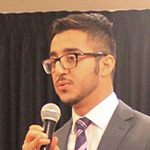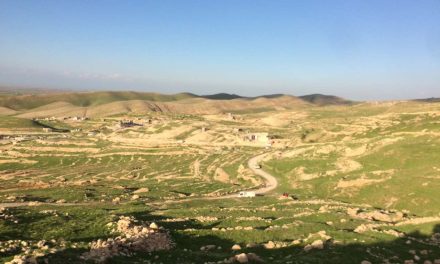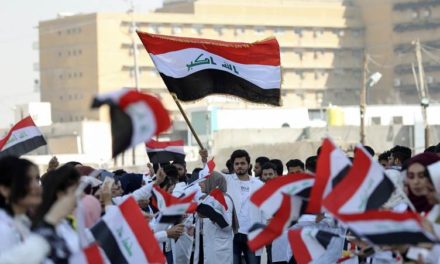Hashim Al-Rikabi
A recent nationwide public opinion survey looked at voter attitudes towards the upcoming parliamentary and provincial elections in Iraq, scheduled for May 2018. The results of the survey, which interviewed 2,300 people across all 18 provinces, offer some interesting insights into voter participation, preferences and priorities.
Electoral Participation
The survey results found that approximately 59% of participants expressed willingness to participate in the upcoming elections in contrast to 16% who said they would not vote, and 25% who were undecided. There was no difference between males and females in regards to the participation (males 60%, females 57%; margin of error 3). Also, the findings of the survey indicate that all youth groups enjoy similar willingness to participate in elections at the level of 60%, which was a slightly higher than older age groups, as shown in Chart I. In terms of attitudes along ethnicity, Kurds appeared less interested in taking part in the upcoming elections, compared to Arabs and Turkmen, as shown in Chart II.
Chart I. Electoral participation based on age groups

Chart II. Electoral participation based on ethnicity

Electoral programs
Participants were asked to cite their top two issues of concern in response to a question about electoral programs. The findings show that the four important electoral issues were economy & services 44%; security & borders 43%; job opportunities 32%; and combating corruption 28%.
Chart III. Most desired electoral programs

The results show that young people between the ages of 25 to 31 were most concerned about job opportunities whereas older generations were naturally less inclined and more concerned with security.
Chart IV. Desirability of programs that focus on job creation based on age groups.

Concerns about corruption were most prominent among younger age groups. Some 83% of people aged 32 – 38 cited corruption as a key electoral issue, as shown in Chart V. However, the interest in combating corruption becomes less of a priority among older age groups, as shown in Chart VI.
Chart V. Prioritizing combating corruption as a key electoral issue among younger age groups

Chart VI. Combatting corruption as a key electoral issue among older age groups

Voter attitudes
Survey findings show that four types of candidates received the greatest support among the electorate. These are: civil/secular trends 24.2%; technocrats 23.9%; groups supported by the religious establishment in Najaf (Marja’iya) 14.9%; cross sectarian lists 12.4%, as shown in Chart VII.
Chart VII. Electoral Attitudes of Iraqi Electorate

However, people who indicated that they would vote for lists that are supported by the Marja’iya are geographically concentrated in central and southern parts of Iraq. These lists enjoy the greatest support in the provinces of Najaf, Karbala, Babil, Qadisiya, and Muthana, as shown in Chart VII. Also, voter participation is significantly higher among those who indicated their support for lists aligned with the Marja’iya (66%), as shown in Chart VIII.
Chart VII. Electoral preferences in Najaf, Karbala, Babil, Qadisiya, and Muthana

Chart VIII. Voter participation among Marja’iya trend compared to general trend

Conclusion
The survey found that there are no differences among men and women in terms of voter participation. Willingness to participate in the upcoming elections falls within the range of previous election turnouts. However, electoral attitudes and preferences for certain electoral programs seem to vary based on age, ethnicity, and geographic location.
Concerning electoral programs, those that focus on economy and security seem to dominate electorate preferences, as well as combating corruption. In contrast, the electorate seems much less interested in programs that focus on reconciliation (4.6%), resolving Baghdad-KRG outstanding issues (3%), foreign policy (2.7%), decentralization (2.4%), and sports (1.5%). However, it is worth noting that the survey was conducted before the Kurdish referendum and its aftermath. Nevertheless, there appears to be a gap between the most divisive political issues among elites on the one hand, and the priorities of the general public on the other.

Hashim Al-Rikabi
Hashim Al-Rikabi is a researcher at Al-Bayan Center for Planning and Studies in Baghdad where he focusses on institutional reform and rule of law. He holds a Master’s in Political Science from Western Illinois University.










